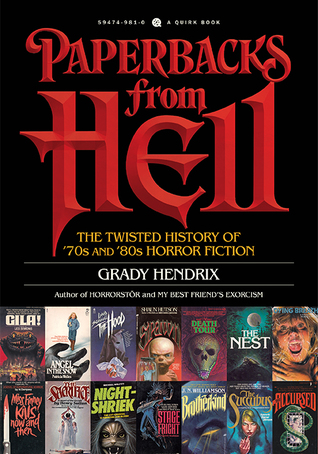More on this book
Community
Kindle Notes & Highlights
Read between
July 11 - July 14, 2021
The lesson horror teaches us is that everything dies.
Things change, flesh rots, houses decay and fall into disrepair—there’s no point complaining. But the lost creativity makes you want to scream and pound on the inside of your coffin lid as it’s being nailed into place. If we forget about these books,
After writing a stack of unpublished novels, Coyne studied The Exorcist and delivered The Piercing (1979), a carefully calibrated knockoff about stigmata.
One of the largest magazine and pulp publishers, Dell entered the paperback field under the guidance of long-term employee Helen Meyer, the first female president of a publishing house.
Before Game of Thrones Martin was, like Thomas Monteleone and Charles L. Grant, a science fiction guy who got into horror when the market was booming.
more prolific and pulpier Ray Bradbury, Matheson is one of the cornerstones of twentieth-century American horror, with twenty-seven novels and more than one hundred short stories to his credit.
This Canadian novelist rocketed to attention with his debut First Blood (1972), which was denounced by Time magazine as “carnography” and made into a movie starring Sylvester Stallone.
Originally established to dump Playboy magazine joke books onto the market,
Founded with a focus on books for male readers, the line remained dormant until 1976, when it abandoned men and began targeting female readers with horror novels and bodice rippers.
Although born in Nebraska, Ptacek attended university in New Mexico, and many of her nineteen novels deal with the Southwest, Native Americans, and giant gila monsters, among them Gila! (1981, written as Les Simons), Shadoweyes (1984), and Kachina (1986). She was married to Charles L. Grant until his death and, like him, also works as an editor.
Dell hired him to paint a cover for one of its Agatha Christie titles. Dell was contractually forbidden from depicting the book’s characters on the cover, but Teason’s clue-based still life won approval and he wound up painting about 150 Christie covers for Dell.
She remains the only person ever to refuse a Nebula Award.
Wheatley established himself as the great British horror author of the ’30s, ’40s, and ’50s selling a million copies every year.


